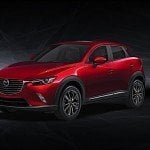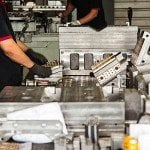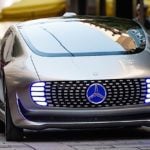The dream of an affordable, fuel-cell–powered car moves a little closer to reality as two of the world’s biggest auto makers—General Motors and Honda—say that they are cooperating on developing a cheaper fuel cell by 2020. The goal, the two companies said at a press conference announcing the arrangement, is a common hydrogen powertrain that will make the vehicles more affordable. The cooperative effort will enable each company to cut development costs.

Cost has been the main stumbling block to the affordable fuel cell alternative, mainly because the most effective current technology uses a lot of platinum as the catalyst for the chemical reaction between hydrogen and oxygen. Another cost is associated with the storage of the hydrogen.
The search for new catalytic materials to power hydrogen fuel cells is producing new developments almost weekly, it seems. Today, South Korean researchers announced that they have developed a carbon nanotube-based catalyst that could replace platinum in activating the oxygen reduction reaction (ORR), the fundamental reaction that makes fuel cells work. The Korean researchers proved that their nanotube catalyst was more effective for oxygen reduction than platinum/C catalysts.
The GM-Honda alliance is just one of three among the world’s major automakers. Last January, Toyota and BMW announced a similar teaming up to jointly develop fuel-cell vehicles. Following that announcement, Renault, Ford and Nissan said they were working together too. Nissan has since said that it hopes to make the world’s first affordable fuel-cell vehicle available in 2017, while Toyota and Honda plan to put models on the market as early as 2015, according to the Japan Times. Those models, however, will not likely have wide appeal, with prices in the “several million yen” range (1 million yen = $10,500). The Toyota model will be cost-competitive with the Tesla Model S, which currently sells for $69,900.
In February, the US Department of Energy issued a Request for Information seeking input from stakeholders regarding its proposed cost and performance targets for automotive fuel cells. The DOE had set a target cost of $40 per kW and durability target of 5,000 hours, or 150,000 miles, for the year 2020. The cost target drops to $30 per kW for 2030.

































